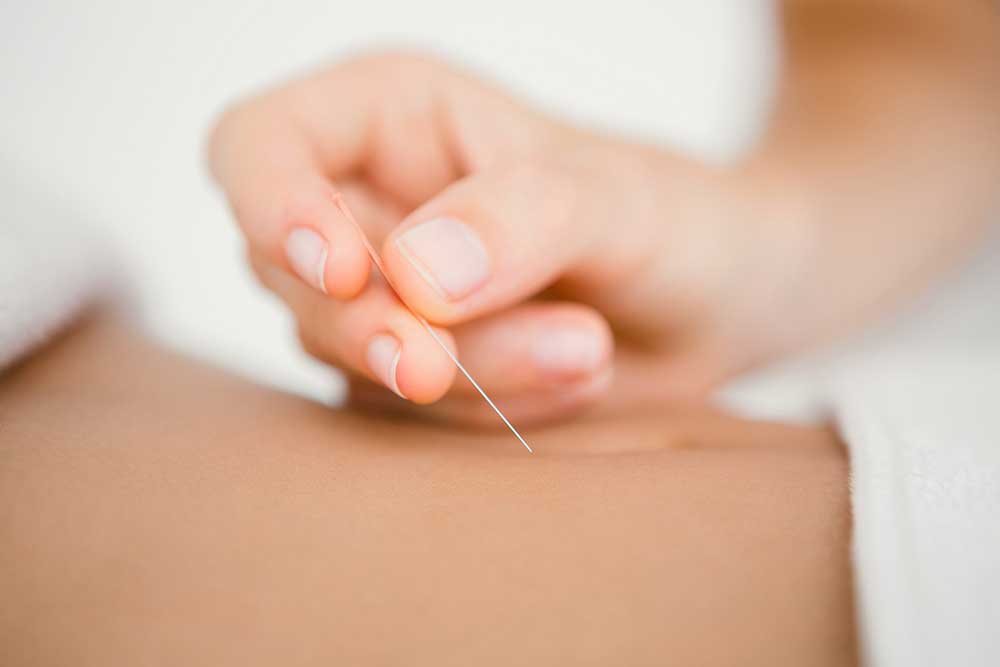Acupuncture
Traditional Chinese Medicine & Acupuncture
Traditional Chinese medicine is a holistic medical system which combines the use of acupuncture, herbal medicine, dietary modification, lifestyle change, tui na (bodywork) and a complex system of diagnosis to bring the body into balance. Traditional Chinese medicine originated in China over 3000 years ago and is now used around the world as an effective healing system, treating body, mind and spirit.
How does Acupuncture Work?
In recent years, science has determined that human beings are complex bioelectric systems. This understanding has been the foundation of acupuncture practice for several thousand years. Chinese medical theory is based on the concept of “qi” or vital energy. The qi circulates throughout the body along specific pathways, called meridians. There are twelve principal meridians, each connecting with a major organ system. Along these meridians are points at which the flow of qi is most accessible. As long as the energy flows freely through these meridians, health is maintained. When the flow of energy is disturbed for any reason, there is disruption in health, resulting in pain or illness. Stimulation of these acupuncture points influences the flow of qi, bringing the body back into balance. Modern scientific research has shown that acupuncture triggers the production of endorphins, the body’s natural painkillers. It also has been shown to positively affects the endocrine and nervous systems, helping the body achieve physical and emotional well being.

Is Acupuncture and Chinese Medicine safe? Can it be effective while on medication or when other treatments fail?
Is Acupuncture Painful?
Very different from hypodermic needles, acupuncture needles are hair-thin and solid. Sometimes a slight pricking sensation is felt as the needle enters the skin. Once the needle is in place, common sensations include heaviness and warmth in the general area. Most patients experience a deep state of relaxation and many fall asleep.
What Are The Benefits of Acupuncture?
Since acupuncture promotes the body’s natural healing ability, most conditions can be corrected or improved. Traditional Chinese Medicine is a comprehensive system of preventive health care and health maintenance. The effectiveness of acupuncture and Chinese Medicine is well documented and extends far beyond the conception that it is only useful for chronic pain management or as an analgesic.
How Many Treatments Will I Need?
Each patient is unique. The number and frequency of treatments will vary from patient to patient. Some symptoms are relieved within the first several treatments, while other more chronic conditions can take longer. While a specific problem is being worked on, you may visit your acupuncturist once or twice a week, and gradually reduce the frequency to once or twice a month. To simply maintain good health, you may limit your treatments to once every season – four times a year.
What Conditions Are Commonly Treated by Traditional Chinese Medicine?
By restoring physiological balance, Traditional Chinese Medicine treats many conditions. The National Institutes of Health and the World Health Organization have recognized TCM to treat nearly four-dozen common ailments.

Musculo-Skeletal:
arthritis/joint problems, athletic injuries, back pain, bursitis, carpal tunnel syndrome, fibromyalgia, knee pain, neck/shoulder pain, repetitive stress injuries, sciatica, tendonitis, trauma
Respiratory:
allergies, asthma, bronchitis, common cold, cough, flu, sinusitis, sore throat, smoking
Digestive:
bloating, colitis, constipation, Crohn’s Disease, diarrhea, gastric reflux, hemorrhoids, indigestion, nausea, stomachache, ulcer
Cardiovascular:
angina, arrhythmia, high blood pressure, palpitations, poor circulation, swelling of hands/feet
Emotions:
anxiety, depression, insomnia, irritability, stress.
Gynecological/Genito-Urinary:
endometriosis, hot flashes, infertility, mastitis, menstrual pain & irregularity, PMS, difficult urination, prostatitis, sexual dysfunction, vaginal or urinary tract
What can I expect with Acupuncture?
Most people are surprised at the depth of relaxation, the intensity of energy and the sense of well-being and healing which occurs from the balancing of energy. Often, relief from symptoms is felt immediately, or may occur in a few days or weeks, depending on the severity of the symptoms. Patients look forward to treatment not only for its healing benefits, but also for the sense of serenity experienced during and after treatment. Many who have lived with their conditions for many years do not know that they can recover or may think that someday it will go away. Chinese Medicine has succeeded in many cases where other treatments have not. It is just a matter of trying it and committing to the length of treatment to see a difference, even when none was thought possible!


